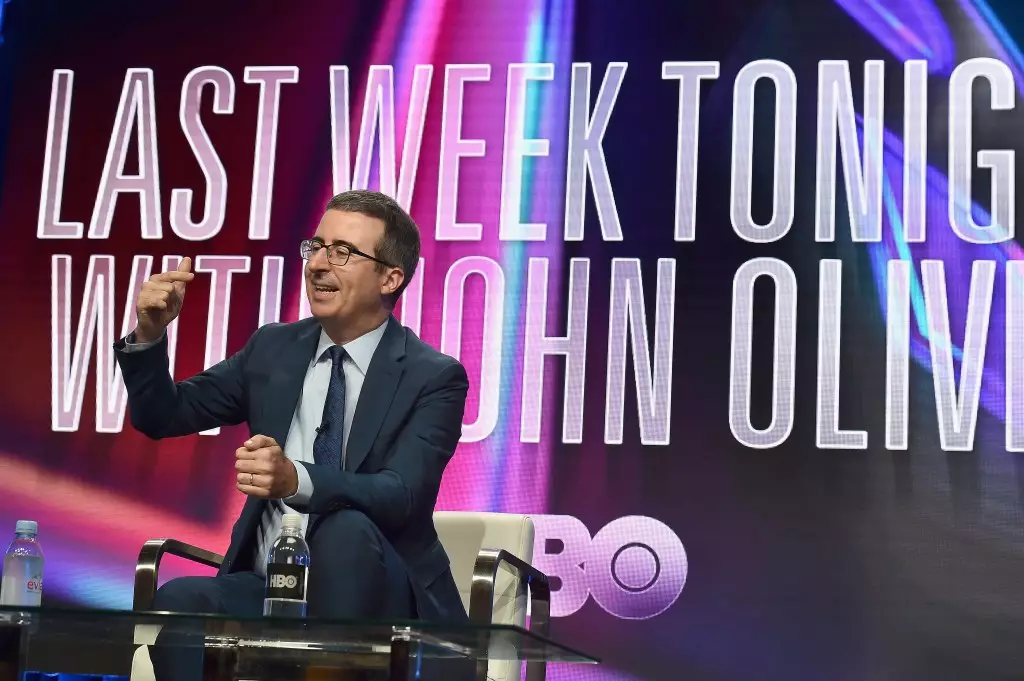John Oliver, the acerbic host of HBO’s *Last Week Tonight*, is no stranger to controversy. However, his comedic style of tackling serious issues may have crossed a perilous line. The host finds himself potentially embroiled in a significant defamation lawsuit filed by Dr. Brian Morley, a former health care executive. This legal drama, with its twists and turns reminiscent of a dark comedy, raises important questions about the balance between satire and responsibility. As viewers clamor for biting satire, what happens when the satire encroaches on the realm of legal liability?
The Heart of the Controversy
At the crux of this lawsuit are Oliver’s comments made during a segment that critiqued Medicaid fraud and the practices of Managed Care Organizations. Dr. Morley argues that the segment presented him in a light that not only misrepresented his statements but also maliciously twisted his words to elicit outrage. According to Morley, Oliver’s assertion that he allegedly thinks it’s acceptable for people to remain unclean for days was a deliberate act of misinformation, designed to sensationalize the issue for entertainment value.
As so often happens in media, the line separating critique and defamation can be precariously thin. Oliver’s scathing comments, such as, “fuck that doctor with a rusty canoe,” epitomize the kind of shock-value humor that his audience has come to expect. But should this kind of humor extend into the realm of tangible consequences for the individuals being critiqued? The emotional and reputational fallout for Dr. Morley is substantial, especially when one considers that satire should not come at the expense of another person’s character without just cause.
The Legal Framework: Defamation Defined
To win a defamation case, the plaintiff must demonstrate that the defendant made a false statement about them, which caused harm to their reputation. This notion of “falsehood” poses an intriguing challenge for this case. Channeling First Amendment rights, Oliver might argue that his comments fall under protected speech, particularly given the satirical nature of his program. However, the contours of satire and its permissible exaggerations often undergo judicial scrutiny, particularly when it involves factual assertions about individuals.
Dr. Morley’s lawsuit raises arguments about the potential “reckless disregard for the truth” by Oliver and his production team. Their preparation and knowledge of the full context of Morley’s statements could prove to be critical pieces of evidence, underlining the idea that they knew, or should have known, the nuances of his argument. The crux rests on whether exactly how much distortion occurred during the editing process—where soundbites are often stripped from their context and reframed to fit a narrative.
Public Reaction and Broader Implications
Sex and scandal in entertainment always garner attention, but when the consequences touch on matters of public health and morality, the stakes rise. There is a segment of the audience that may champion Oliver for his sharp critique of the health care industry, considering such tactics necessary to expose injustice. Yet, the increasing willingness to target individuals in the name of humor harkens back to a troubling trend where the destruction of reputations becomes collateral damage in the quest for ratings.
Additionally, this case raises uncomfortable questions about the ethics of claim-making in entertainment. How far is too far? As a society, do we sanction a form of commentary that dismisses the fallout on real-life individuals, particularly within the complex and often fraught world of healthcare? Oliver’s style may captivate millions, but this legal spat serves as a timely reminder that words hold power, and misusing that power can lead to genuine harm.
The Ripple Effect: A Cautionary Tale for Entertainers
The pending lawsuit has broader implications beyond just one late-night host. It serves as a cautionary tale for all commentators and entertainers navigating the stormy waters of social and political satire. As audiences grow more discerning and sensitive regarding issues of ethics and accountability, the art of satire must evolve to ensure its safety and credibility. It raises the point of whether humor should come with a moral obligation, especially when pointed at real individuals facing complex and challenging circumstances.
Oliver’s reputation for holding institutions accountable could be juxtaposed against the potential fallout from this case. Will it reinforce the perception that satire can act as a protective shield against accountability, or could it reshape how late-night commentary is conceptualized and executed in the future? One thing is certain: as this litigation unfolds, both Oliver and the media landscape will be forced to grapple with the significant ramifications of their roles as commentators in today’s convoluted and often polarized society.

Leave a Reply